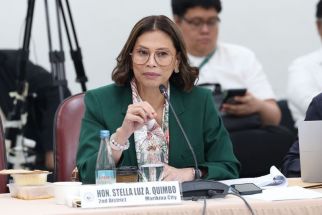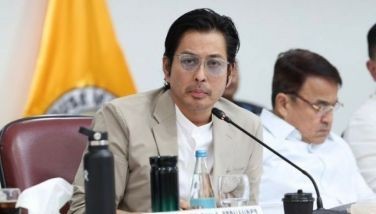Internet law experts, bloggers seek to nullify cybercrime law
MANILA, Philippines - A group of Internet law experts and bloggers questioned before the Supreme Court (SC) yesterday the constitutionality of the newly enacted Republic Act 10175 or the Cybercrime Prevention Act.
The group led by Jose Jesus Disini Jr., director of the Internet and society program at the UP College of Law, asked the high court to nullify five provisions in the law signed by President Aquino last Sept. 12, saying it violates the people’s rights to freedom of expression, due process, equal protection and privacy of communication.
Disini was joined by bloggers Ernesto Sonido Jr. and JanetteToral and lawyers Rowena Disini and Lianne Ivy Medina in filing the 31-page petition for certiorari and prohibition.
The petition said the new law also violates constitutional sanctions against double jeopardy, undue delegation of legislative authority and right against unreasonable searches and seizure.
Disini cited section 19 of RA10175 that gives the secretary of justice the power to block or restrict access to any content upon prima facie finding of violation of the law even without trial.
“This provision contains undue delegation of legislative authority, infringes upon the judicial power of the judiciary, and violates the petitioners’ constitutionally-protected right to due process and freedom of expression,” he said.
He also cited section 12 of the law, which permits the National Bureau of Investigation (NBI) and Philippine National Police (PNP) to collect traffic data without intervention of a judge.
“This unwarranted authority to engage in wholesale surveillance of all cellular data, mobile, Internet and computer communications violates the petitioners’ constitutionally protected right to be free from unreasonable searches and seizure as well as the right to the privacy of communications,” Disini said.
Disini also questioned a provision in the new law that increases penalty for libel by up to 10 years, which he said “infringes upon the freedom of expression and restricts the freedom of the press.”
“The increased penalties, plus the ease by which allegedly libelous material can be removed, work together as a ‘chilling effect’ upon protected speech,” he said.
He cited the warning issued by Sen. Vicente Sotto III of possible criminal prosecution against bloggers who criticized him for supposedly plagiarizing online materials in his speech against the controversial Reproductive Health bill.
“He warned critics that once signed into law, the cybercrime bill will penalize defamatory statements made online... The threat of criminal prosecution that was issued by Senator Sotto affected not only bloggers but all users of the Internet and social media,” the petition read.
Disini asked the high court to issue a temporary restraining order stopping the implementation and nullifying the questioned provisions.
- Latest
- Trending




























